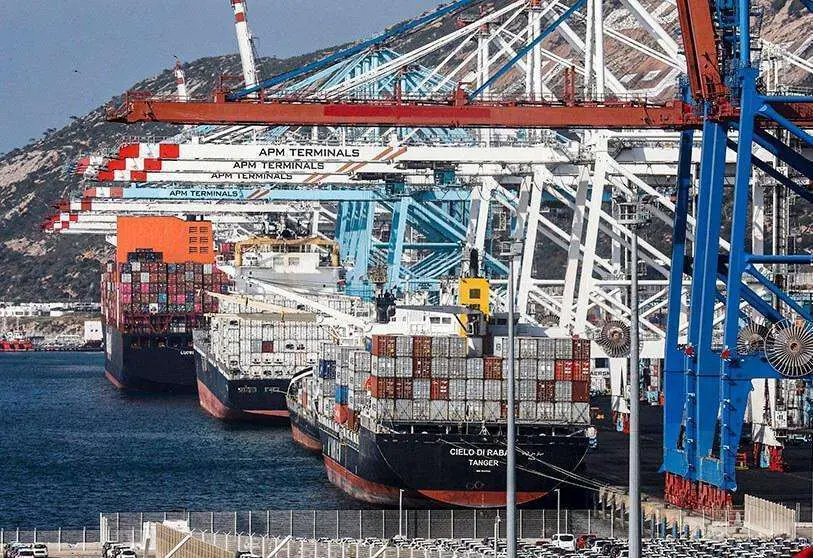Argentina refuerza sus relaciones comerciales con Egipto y Marruecos en plena pandemia

Increase the flow of foreign currency in times of shortage? Or not pay foreign debts and invest to get out of the deep economic and health crisis caused by the coronavirus? Argentina - a country that at the moment cannot pay its sovereign debt in the short term - faces a great dilemma. The Southern Cone country has been in recession since 2018 with inflation above 50% and unemployment above 10%. This situation - which has brought a third of the population to the brink of the abyss - has caused the Executive led by Alberto Fernández to react. In recent months, he has bet on strengthening the market for Argentine food exports to countries such as Morocco, Algeria, Tunisia and Egypt, among others.
The ministry led by Felipe Solá has held a meeting with various private sector leaders in which he has informed them of the markets that offer the most possibilities for expanding exports in the short term. Although Argentina has decided to bet on a total of 16 countries in North Africa, it has not wanted to neglect other regions of the world such as Asia and Oceania (with a total of 56 markets in which to invest), Europe (51), South America (31), Sub-Saharan Africa (24), the Middle East (23), Central America and the Caribbean (20), Eurasia (13) and North America (8), according to the data provided by the Argentine newspaper La Nación.
The economic recession that has been hitting Argentina for more than two years has been deepened by the coronavirus pandemic, which has killed at least 2,588 people since the country's health crisis began. This pathogen has led many nations to prioritize food supply or seek other international trade alternatives, as Argentina has done, seeing in Morocco an opportunity to address its current debt crisis.
"The pandemic generates uncertainty about the future of global trade," said the Minister of Foreign Affairs, International Trade and Worship of the Republic of Argentina, who believes that "it is essential that the State works pragmatically with the productive sectors. "We have to export much more so that we never get into debt again. We will do it together", he added.

Felipe Solá admitted to being "proud" of Alberto Fernández's decision to restore the Foreign Ministry's foreign trade. "He gave us the task of increasing exports and that is why today, with more than 170 business chambers, we are presenting the Public-Private Council for the Promotion of Exports," he explained through the social network Twitter. According to the documentation to which the newspaper El Nacional has had access, at this time, Argentina intends to increase exports in Morocco of products such as wheat, powdered milk, cheese, lentils and chickpeas.
On the other hand, the Latin American country will focus its exports to Algeria on the production of refrigerated beef, chickpeas, beans, wheat and powdered milk; while in Egypt it will bet on vegetable oils and wheat. However, in Tunisia they plan to export soybean oil, sugar and sweets, according to the aforementioned newspaper. In addition, Argentina sees the Saudi market as an opportunity to export products such as lemons, onions, apples, chicken or beef.
The Kingdom of Saudi Arabia, for example, has temporarily reduced or eliminated tariffs on animal imports, according to the nation presided over by Alberto Fernández, who sees this as an opportunity to invest. According to this criterion, Egypt, for its part, has become one of the countries with which the Latin American nation intends to prioritize food supply. The report from the Argentine embassy in Egypt, which has been accessed by the newspaper La Nación, states that "the authorities have suspended the export of all types of vegetables for three months, and have focused on increasing strategic food reserves to meet local demand in the face of a potential shortage of foreign currency for food imports" and explained that the Egyptian government is seeking to "import one million tonnes of wheat" in the medium term. This list also includes countries such as the United States, Brazil, Bolivia, Colombia, Ecuador, Peru and Chile, as well as Russia and China.
Diplomatic relations between Argentina and Morocco have always been characterized by close cooperation in various fields. A year ago, the then Minister of Foreign Affairs said after meeting with his Moroccan counterpart that "both countries are working intensively on integration projects aimed at strengthening ties".









